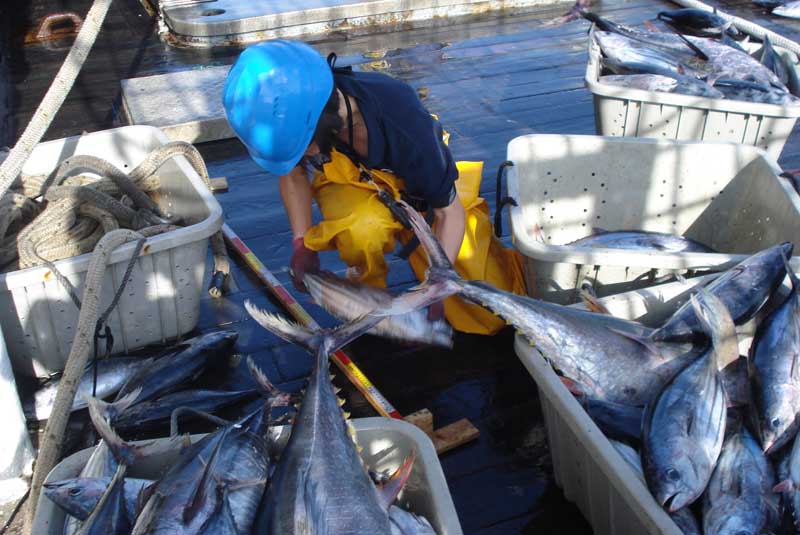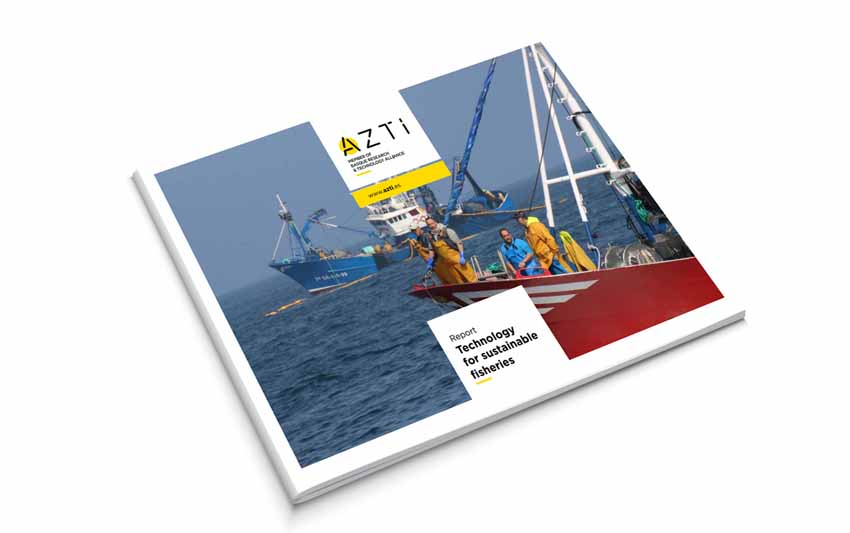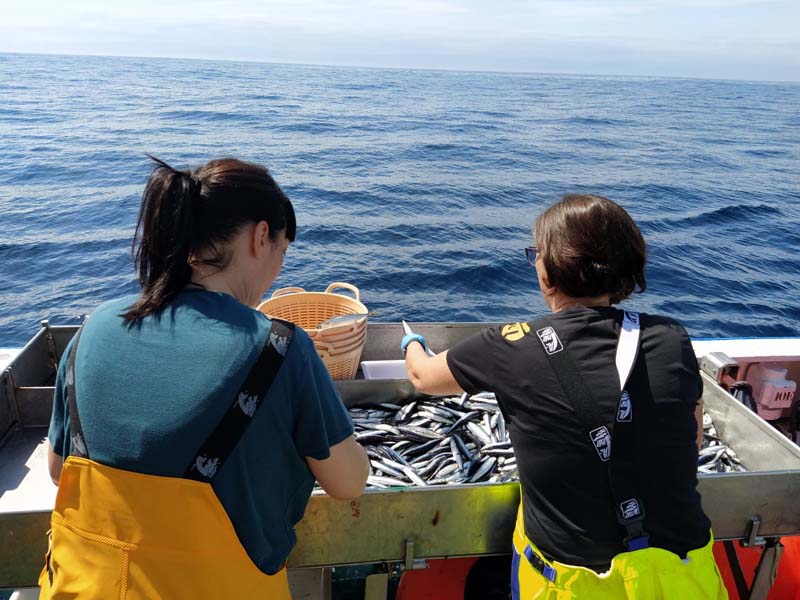2023 has left us with a lot of work to do in global tuna management
Últimas noticias
Una mirada LGTBIQ+ al reino animal
Circular Economy in Action: Valorisation of By-products through Projects like PRIMA NEWFEED
Strategic Perspectives: Highlights from the Food4Future World Summit for Business Leaders
Josu Santiago. Sustainable Tuna Management Coordinator. AZTI
By 2023, 86% of the world’s tuna catches will come from healthy stocks. But there are still 14% of catches from four tuna stocks that need to be better managed. These are yellowfin and bigeye tuna in the Indian Ocean, albacore in the Mediterranean and bigeye tuna in the Atlantic.
Regional fisheries organisations (RFOs) are responsible for managing the world’s tuna stocks. There are five tuna RFMOs in the world: IATTC and WCPFC in the Pacific, IOTC in the Indian Ocean, ICCAT in the Atlantic and a fifth, CCSBT, which is responsible for a single species, southern bluefin tuna. During the year, the RFMOs adopted important measures to ensure the conservation and optimal exploitation of tuna stocks. However, there has also been a lack of progress on some important issues due to the parties’ differences, such as the tropical tuna measure in the Atlantic and the measures to improve the management of yellowfin tuna in the Indian Ocean.
Índice de contenidos
Indian Ocean
IOTC: The year began with the total failure of the special meeting of the IOTC Commission in Kenya in early February. A measure on the management of Fish Aggregating Devices (FADs) in purse seine fisheries, drafted by non-purse seine countries, was adopted by vote and without consensus. There was no intention of working towards an agreement and the meeting ended with a measure that appeared to be aimed at weakening a commercial competitor and was suspected of being externally orchestrated by private interests. In the end, the measure did not come into force due to opposition from more than a third of IOTC members.
At the regular meeting of the Commission in Mauritius in May, progress was made. In particular, the catch limit for bigeye tuna was adopted in line with the management procedure adopted by the IOTC with the support of its Scientific Committee. However, they have not yet been able to agree on improvements to the measure for yellowfin tuna to reduce its overfishing, nor on a reduction in catches of skipjack tuna to match the scientific recommendation under the current harvest control arrangement for this stock.
The year ends for IOTC with the annual meeting of its Scientific Committee and the good news that the assessment of the skipjack tuna stock concludes that it is in a sustainable state with no signs of overfishing.
In 2024, the Scientific Committee will once again face the challenge of assessing the status of yellowfin tuna, after years of trying to overcome the complexity of its modelling and, for the Commission, the urgent need to agree on management measures for yellowfin tuna and tropical tuna fisheries in general, including the allocation of fishing opportunities between countries.

Atlantic Ocean
ICCAT: This Commission has now tried for three years in a row to agree on improvements to the current management measures for tropical tunas, and once again failed to do so at its annual meeting in Cairo in November 2023. However, ICCAT will maintain its current conservation measure until 2024, which will ensure that the current management framework for tropical tunas remains in force, although unfortunately it will not yet implement the necessary improvements.
But Cairo also brought good news for other tuna and tuna-like species. A total of 25 management measures were adopted, including a 25% increase in the Total Allowable Catch (TAC) for albacore tuna, the result of applying the recently adopted ICCAT management procedure. New conservation measures were also agreed for cetaceans, whale sharks and moby dolphins, as well as new conservation and management measures for blue sharks and swordfish.
The challenge for ICCAT between now and 2024 will be to reach agreement on improvements in the measurement of tropical tunas. The ICCAT Scientific Committee also has the important task of assessing the yellowfin tuna stock, whose catches in recent years have been well above the established limits. Like the IOTC, this committee will be faced with the challenge of agreeing on the allocation of fishing possibilities for tropical tunas in 2024. In both commissions, there is no limit on fleet capacity, which makes it difficult to adopt truly effective management measures.
Pacific Ocean
IATTC: The IATTC’s annual meeting in Victoria, Canada, in August was a success, with up to 12 binding resolutions adopted by consensus on a wide range of issues. Particularly noteworthy were the measures adopted on management procedures and on FADs, with new rules on non-entangling and biodegradable FADs. In this regard, it is the first RFMO to adopt a schedule for the introduction of biodegradable materials for the construction of these devices.
The coming 2024 will be a very important year for this Commission as its scientific staff will have to assess the state of the three tropical tuna stocks and the Commission will have to negotiate and agree on conservation and management measures for these stocks for the new three-year cycle 2025-2027.
WCPFC: This is the only RFMO where the three tropical tuna species – skipjack, yellowfin and bigeye – are neither overfished, as their abundance is above the target level, nor overfished, as the fishing mortality rate is below the target level. The same applies to albacore in the North and South Pacific. However, it is important to note that bluefin tuna continues to be overfished. However, with the measures in force, it is certain to fully recover within the current decade.
Following the August meeting of the Scientific Committee and the December meeting of the Commission in Cook Island, significant progress has been made in the management of tuna fisheries in the Pacific Ocean. These developments include the implementation of a harvest control rule for North Pacific albacore and the implementation of an updated conservation measure for tropical tunas. This includes a reduction in the closed seas
Progress has also been made on increasing observer coverage on longline vessels to 10% from now on. However, other important measures, such as the introduction of biodegradable elements in FADs, will have to wait for the WCPFC to consider them at its meeting in 2026.
We are therefore closing the year and leaving important work for 2024. Particularly in the Atlantic and Indian Oceans, where coordinated and cooperative work between the different parties, with transparency, dialogue and a sincere willingness to reach agreements, must be a priority. The tuna RFMOs have succeeded in reversing the decline in global tuna stocks. And there is no doubt that they will continue to do so in the future by maintaining these important resources at optimal levels of conservation and exploitation.
Article published in the journal Ruta pesquera.







